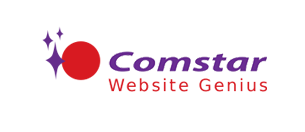As eCommerce and online sales revenues have grown over the past 15 years, so have the tools to develop, stock, and maintain an online store. Where once all online stores were developed as custom sites that had to be maintained by your web designer, today the most successful stores start with a full-featured eCommerce engine that is then customized by your web developer and managed by anyone on your staff familiar with Microsoft Windows applications.
At one time, if you had a web design firm develop your online store you had difficulty moving your website to another host, making your website a virtual prisoner to them. We have found that due to bad experiences with other vendors, those who are coming to Comstar bring this up as a major concern. (We, of course, do not use a proprietary eCommerce approach, so that our clients could take their website to any Microsoft compliant hosting provider.)
Today there are so many eCommerce engines that they cannot be counted. One of the challenges we face as web developers is choosing the right one for our clients’ needs. We do this by conducting workshops with our clients to find out about their business model and how it aligns with their vision of their online store. Then we match the solution to their vision.
While specific features can vary, all eCommerce engines we put into play have much the same basic functionality, utilizing best practices to build assets for our clients. They all include a familiar shopping cart experience, large and small photos, descriptions, an ability to pay through a payment gateway, etc.
The solutions we use most have additional features that can be turned on as needed, such as a Featured Product area, a Top Seller area, or cross-selling of products. Coupons, discounts, and special pricing for designated customers are often utilized, valuable features, as well. Emailing customers, supporting Affiliate sellers, and contacting vendors can be especially important. Inventory control, order fulfillment, and shipping are also a big part of any eCommerce solution that can benefit from professional advice.
That’s one thing about my job at Comstar, I see lots of ideas for online businesses. Some you wonder about and some you just know will be big money-makers. But you know none will succeed without an ability to generate sales online, 24/7.
As you contemplate selling online or improving your online sales in the coming year your online store will only be an asset if it is both useful and gets used by buyers looking for what you offer.
Check back for more info on how to build a real asset of an online store in Part Three!

![Reblog this post [with Zemanta]](https://img.zemanta.com/reblog_e.png?x-id=e1a8ea2e-81b6-4c26-ae60-810414e51a40)